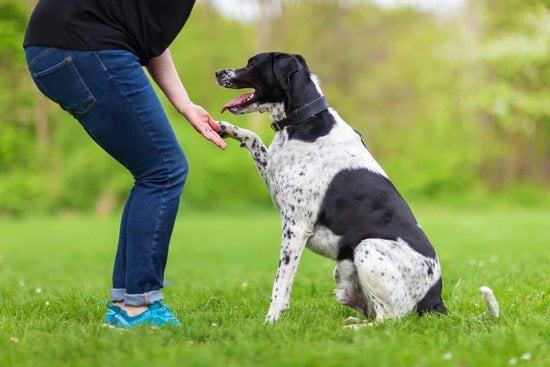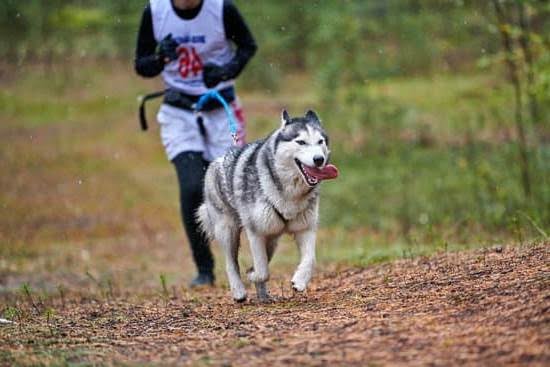Can an adult dog be trained as a service animal? Service animals play a vital role in assisting individuals with disabilities, providing support and enhancing their independence. These specially trained animals can perform a variety of tasks to aid their handlers in navigating daily life. From guiding the blind to detecting medical emergencies, service dogs are trained to meet specific needs and improve the quality of life for those they assist.
When considering potential candidates for service animal training, certain characteristics are key. The age of the dog can also play a significant role in their suitability for this important role. While many people may think that only puppies can be trained as service animals, adult dogs can also be successfully trained to fulfill these critical roles.
Despite the challenges that come with training an adult dog, there are distinct advantages as well. Adult dogs may already have some basic training or life experiences that can positively impact their ability to adapt to service animal training. Understanding how to work with an adult dog’s existing behaviors and building upon their unique strengths can lead to successful outcomes in their journey towards becoming a reliable and effective service companion.
What Makes a Good Service Animal Candidate
When considering whether an adult dog can be trained as a service animal, it is essential to look for specific characteristics that make a good candidate for such important work. One crucial factor is the dog’s temperament. Service animals need to be calm, friendly, and well-mannered, even in stressful or unpredictable situations.
They should also be alert and responsive to their handler’s needs. Additionally, a potential service dog should exhibit intelligence, adaptability, and a strong desire to please their human companion.
While many people may assume that only puppies can undergo successful service animal training, adult dogs are also viable candidates for this role. In some cases, adult dogs may even have advantages over puppies when it comes to becoming service animals.
For instance, adult dogs often have more established personalities and behavior patterns than puppies, which can help trainers assess their suitability for the role more accurately. Moreover, adult dogs tend to have longer attention spans and greater impulse control than younger dogs, making them better equipped to handle the demands of service work.
Despite the benefits of training an adult dog as a service animal, there are challenges involved in modifying existing behaviors or habits that may not align with the requirements of service tasks. Adult dogs may have learned certain behaviors over time that need to be unlearned or redirected through training.
However, with patience, consistency, and positive reinforcement techniques, adult dogs can overcome these challenges and develop the skills necessary to assist individuals with disabilities effectively. With proper guidance and support from experienced trainers, adult dogs can an adult dog be trained as a service animal successfully transition into fulfilling roles as service animals helping improve the quality of life for those in need.
| Characteristics of a Good Service Animal Candidate | Benefits of Training an Adult Dog |
|---|---|
| Calmness | Established personalities |
| Friendly demeanor | Longer attention spans |
| Intelligence | Greater impulse control |
Benefits of Training an Adult Dog as a Service Animal
Training an adult dog as a service animal can be a rewarding and beneficial experience for both the dog and their handler. While many people believe that only puppies are suitable candidates for service dog training, adult dogs also have unique advantages to offer. Here are some benefits of training an adult dog as a service animal:
- Established Behavior Patterns: Adult dogs have already developed certain behaviors and manners, making them more predictable than puppies. This predictability can be advantageous when training for specific tasks or behaviors required in service work.
- Faster Learning Curve: Adult dogs typically have a higher attention span and focus compared to puppies, allowing them to learn new commands and tasks more quickly. This can expedite the training process and help adult dogs become fully functional service animals in a shorter amount of time.
- Rescued Dogs Get a Second Chance: Training an adult rescue dog as a service animal not only provides them with a meaningful job but also gives them a second chance at life. Many adult shelter dogs have the intelligence and temperament needed to excel as service animals, making them perfect candidates for this type of work.
When considering whether an adult dog can be trained as a service animal, it is essential to take into account their previous training or life experiences. For example, an adult dog who has undergone basic obedience training or has been socialized well may have an easier time transitioning into service work. On the other hand, adult dogs with behavioral issues or trauma may require additional support and specialized training techniques to succeed as service animals.
Training Techniques for Adult Dogs
When it comes to training adult dogs as service animals, there are specific techniques that can be effective in helping them excel in their role. One important aspect to consider is the use of positive reinforcement methods. Adult dogs, just like puppies, respond well to rewards such as treats, praise, and playtime when they exhibit desired behaviors. By using positive reinforcement consistently during training sessions, adult dogs
Consistency and Patience
Consistency is key when training adult dogs as service animals. It’s important for handlers to establish a routine and stick to it to help adult dogs understand what is expected of them. This includes consistent cues, commands, and rewards for desired behaviors.
Additionally, patience is essential when working with adult dogs who may have established habits or behaviors that need modification. Training an adult dog as a service animal requires time and dedication to help them reach their full potential.
Specialized Training Programs
There are specialized training programs available for adult dogs who are being trained as service animals. These programs often focus on teaching specific tasks related to the individual’s disability or needs. Adult dogs can benefit from these tailored approaches that address their unique abilities and limitations. These programs
By utilizing effective training techniques, consistency, patience, and specialized programs, adult dogs can indeed be trained successfully as service animals. With the right tools and approach, adult dogs have the potential to become invaluable partners for individuals with disabilities, enhancing their quality of life and independence through dedicated service work.
Common Service Dog Tasks
When it comes to training an adult dog as a service animal, there are various common tasks and roles they can excel in. Adult dogs may not have the same energy levels as puppies, but their maturity and previous experiences can make them well-suited for certain service tasks. Here are some examples of common service dog tasks that adult dogs can be trained to perform:
- Guide Dogs: Adult dogs can excel in guiding individuals with visual impairments safely through their daily routines, navigating obstacles and signaling when it is safe to cross streets.
- Brace or Support Dogs: These dogs can provide stability and balance assistance for individuals with mobility issues or conditions such as MS or Parkinson’s disease.
- Psychiatric Service Dogs: Adult dogs are excellent candidates for offering emotional support, recognizing anxiety attacks, interrupting self-harming behaviors, and providing a calming presence for those with mental health disorders.
In addition to these specific tasks, adult dogs can also be trained in tasks such as retrieving items, alerting to medical conditions like seizures or diabetes, opening doors, turning on lights, and much more. Their ability to adapt based on previous experiences and maturity level makes them versatile candidates for various service roles.
While training an adult dog for service work may have its challenges compared to starting with a puppy, the benefits of their life experiences and established behavior patterns should not be overlooked. With the right training techniques and dedication from both the handler and the dog, adult dogs can an adult dog be trained as a service animal successfully transition into invaluable service companions that greatly enhance the quality of life for individuals with disabilities.
Legal Considerations
When it comes to the question of whether an adult dog can be trained as a service animal, it’s important to consider the legal aspects surrounding service animals in public spaces. The Americans with Disabilities Act (ADA) defines a service animal as a dog that is individually trained to do work or perform tasks for a person with a disability.
This definition does not exclude adult dogs from being considered as potential service animals, as long as they meet the criteria of being trained to assist individuals with disabilities.
Laws and Regulations Regarding Service Animals in Public Spaces
Under the ADA, service dogs are allowed access to public places such as restaurants, hotels, stores, and other businesses. These dogs are not considered pets but rather working animals that provide necessary assistance to their handlers. It’s essential for owners of adult dogs undergoing training to familiarize themselves with the specific laws and regulations governing the rights and responsibilities of service animals in different settings.
Requirements for Certification and Registration of a Service Animal
While certification and registration are not mandatory under the ADA for service animals, some organizations may offer voluntary credentials to demonstrate that a dog has received appropriate training. However, it’s crucial to note that businesses cannot require proof of certification or documentation for a service animal if the individual’s disability is not apparent.
As long as an adult dog meets the requirements set forth by the ADA in terms of training and behavior, they can be considered a legitimate service animal regardless of their age.
Success Stories
Training an adult dog as a service animal can be a rewarding and successful journey for both the dog and their handler. One of the key benefits of training an adult dog is their maturity and life experiences, which can contribute positively to their ability to adapt to service work.
Adult dogs that have already undergone basic training or have exposure to various environments may transition more smoothly into service animal training compared to puppies. Additionally, adult dogs tend to have a longer attention span and better impulse control, which are essential qualities for service work.
When considering whether an adult dog can be trained as a service animal, it is important to look at their temperament, health, and behavioral traits. While puppies are commonly chosen for service dog training due to their early socialization opportunities, adult dogs with the right characteristics can also excel in this role.
Traits such as attentiveness, sociability, intelligence, and willingness to work with humans are crucial when selecting an adult dog for service animal training. Moreover, older dogs that have had positive interactions with people throughout their lives tend to be more adaptable and responsive during the training process.
Anecdotal evidence and success stories showcase numerous instances where adult dogs have been trained successfully as service animals. These stories highlight the resilience and potential of adult dogs in fulfilling the demanding tasks required of a service animal. By leveraging an adult dog’s existing skills and building upon them through targeted training techniques, handlers can unlock the full potential of these mature companions in providing invaluable support and assistance to individuals with disabilities.
| Adult Dog Training Benefits | Successful Outcomes |
|---|---|
| Maturity | Resilience |
| Past Training | Adaptability |
| Attention Span | Support & Assistance |
Conclusion
In conclusion, the question of whether an adult dog can be trained as a service animal is one that has garnered much attention and debate. While it is commonly believed that puppies are the ideal candidates for service dog training due to their adaptability and early exposure to training, adult dogs should not be overlooked as potential service animal candidates.
Adult dogs, with their maturity and possibly existing behavioral foundation, can actually bring unique advantages to the table when being trained for service work. Their life experiences can provide them with a sense of calmness and stability that may benefit individuals with certain disabilities. Furthermore, adult dogs tend to have a longer attention span and more developed impulse control compared to puppies, which can contribute positively to their training process.
Ultimately, the success of training an adult dog as a service animal lies in the dedication, patience, and expertise of both the trainer and the owner. With proper guidance, consistent training techniques tailored to adult dogs, and a clear understanding of the specific needs of individuals with disabilities, adult dogs can indeed be shaped into valuable service companions.
As we continue to explore innovative methods and approaches in service dog training, we must also keep an open mind towards the potential that adult dogs hold in this important role.
Frequently Asked Questions
Can You Train an Older Dog to Be a Service Dog?
Training an older dog to be a service dog is definitely possible, but it may be more challenging compared to starting when they are younger. Older dogs may have established behaviors that need to be modified or adjusted to fit the role of a service dog.
Patience, consistency, and positive reinforcement will be essential in successfully training an older dog for this important job.
Is It Too Late to Train My Dog to Be a Therapy Dog?
It is never too late to train your dog to be a therapy dog. Dogs of any age can learn new skills and adapt to their roles as therapy animals.
However, older dogs may require more time and patience during the training process, especially if they have not been exposed to certain socialization experiences before. With proper training techniques and a commitment from the owner, it is definitely possible for an older dog to become a successful therapy dog.
What Disqualifies a Dog From Being a Therapy Dog?
There are several factors that can disqualify a dog from being a therapy dog. Aggression towards people or other animals, excessive fear or anxiety, uncontrollable barking, and possessiveness over food or toys are some common reasons why a dog may not be suitable for therapy work.
Additionally, health issues such as mobility problems or chronic illnesses may also disqualify a dog from becoming a therapy animal. It’s important for dogs in this role to be friendly, well-behaved, and able to handle various situations calmly and confidently.

Welcome to the blog! I am a professional dog trainer and have been working with dogs for many years. In this blog, I will be discussing various topics related to dog training, including tips, tricks, and advice. I hope you find this information helpful and informative. Thanks for reading!





